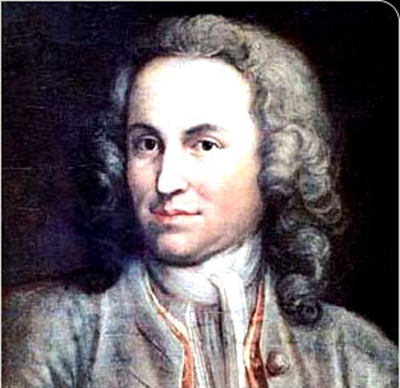Although we think of Bach as a paragon of devotion to duty and hard work, school records indicate that as a child he was an inveterate class cutter. This gives a wrong impression, however; he was most likely helping out in the family business—singing, that is (he had a very fine soprano voice) at weddings, baptisms, anniversaries, and burials.
Still, when the 22-year-old Bach resigned his first major job in 1707 the management may have felt relieved, because he had accumulated quite a list of complaints: he had introduced too many surprising variations into the chorales, confusing the congregation; he had extended a four-week professional-development leave to study with Buxtehude to a full four months; and he was known to slip temporarily off the organ bench during a Sunday sermon to refresh himself at the local winery.
This according to Bach-ABC (Sinzig: Studio-Verlag, 2007). Above, a portrait of Bach when he was a young man; below, Robert Tiso plays Bach’s music on wine glasses.
More posts about J.S. Bach are here.




Pingback: Bach and personal conflict | Bibliolore
Pingback: Lore bach | 120sunrise
Thanks, great post. I just learned something new about Bach, one of my favourite composers.
I play that bourrée piece on the classical guitar, as well as his famous Cello Suite in D and Jesu, Joy of Man’s Desiring. Bach’s the reason I started guitar, just to play that sweet cello suite.